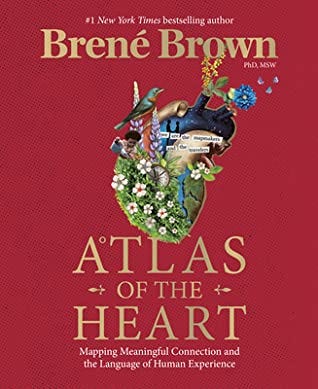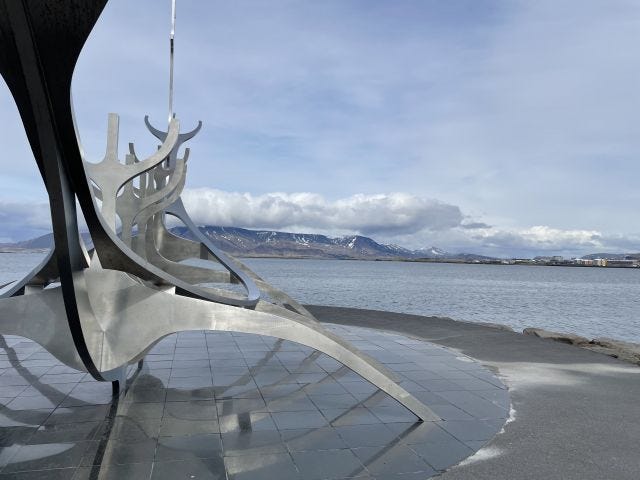Issue 2: On Disappointment, Russian Doll and Travel through time and space
I’ve been thinking a lot about disappointment lately, maybe because the last few years have brought, alongside the generalized fear, stress and grief of the pandemic, some stunning disappointments for just about everyone I know. Maybe because of the recent release of the second season of Russian Doll, a show that has a lot to say about disappointment and regret.

I’ve been obsessed with Russian Doll since it came out in 2018 (I wrote about it for Chatelaine here). The first viewing articulated something very close to a pain I’d been carrying around, giving me a new language in my process of understanding. Since then, I’ve binged the first season more times than I can count. Every watch offers some new insight into what happens when we get stuck in patterns that arise out of trauma.
(Note: If you haven’t watched Russian Doll yet, beware the spoilers in the following paragraphs. It’s hard to write about tv or movies in interesting ways without spoilers, but I also believe it’s a mark of great film and television that it doesn’t rely solely on surprise for pleasure of viewing. So maybe spoilers don't matter, right?)
The second season takes place in the run up to Nadia’s 40th birthday, a time of reflection, as she deals with the failing health of her beloved guardian Ruth. Like the previous season, the universe decides to teach her a lesson by throwing her into a time vortex, but rather than repeating her own life, she ends up fighting to save her mother and grandmother from losses that have trapped the family for generations. Some reviewers have expressed disappointment about how messy the season is compared to the meticulous perfection of the first, but there is still so much to love. I see it as the second act of a three-act play where the neat conclusions of the first act fall apart in ways that must be addressed in the end. But who knows what Lyonne has in mind?
What struck me this time around is the way Nadia chases after roads not followed, desperately trying to fix generations worth of mistakes, horrific tragedy and straight-up bad luck. It said something about a disordered response to disappointment that I couldn’t put my finger on until last week when I ran into unexpected difficulties with a long-planned trip to Iceland to visit the homeland of some of my own ancestors.
Well, it was a vacation, really. I’d booked it during a seat sale last November and it became something of a beacon of hope as I entered my sixth semester of pandemic teaching. Something to look forward to amidst all the work. But travelling in a pandemic is messy business. First, the airline cancelled the direct flight and rebooked it with a stopover in Seattle, meaning my partner and I would need to get COVID tests before leaving. Just like that, the trip that at first seemed like a good deal jumped in price by a few hundred dollars.
Then, the day I was due to leave, I went to check in for the flight and found that the airline had rebooked the first leg of the trip so there was only a 20-minute stopover, a schedule that would have required a time machine to work. I called the airline immediately but it was too late to change anything that day. After some helpless crying, I rebooked the whole trip for the next day. Then I hung up to break the bad news to my partner and stew in my profound disappointment.
When it comes to travel, I’m a planner. I rarely do guided adventures but I like to know what’s going to happen on each leg of the journey before I leave—where I’m going to stay and how I’m going to get there. Only when I’ve set up that solid framework can I relax and enjoy the surprises of being in a new place amongst people who move in a different rhythm. I’ve learned to loosen up over the years and enjoy the flow a bit more, but I still pride myself on being prepared.
Losing a whole day of a five-day trip was more than I could handle. It meant getting new travel tests, rebooking the rental car and paying for a night in a hotel we wouldn’t use. Watching the complications and cost rack up, it felt like the universe was telling me I shouldn’t have tried something so audacious in the first place.
The worst part was the feeling that I should have caught the error earlier. When they’d made changes to the itinerary before, they’d emailed me. I checked over and over for similar correspondence about this change and found none, but maybe I could have caught it if I’d been more vigilant, more on the ball. The disappointment I felt when it first played out quickly shifted into a thorny case of regret.

Disappointment and regret are related emotions, both arising when circumstances turnout differently than we’d hoped. The difference between the two, according to Brené Brown’s Atlas of the Heart (which is fascinating in its granular analysis of emotions though I find some of Brown’s advice glib), is our perception of our agency over the events that lead to the outcome.
“With disappointment, we often believe the outcome was out of our control (but we're learning more about how this is not always the case). With regret, we believe the outcome was caused by our decisions or actions,” Brown writes.
Both feelings lead to a sense of loss and frustration. Both can be corrosive if turned outward—anyone who’s worked in customer service knows what I’m talking about— but regret adds the extra element of self blame and shame.
I’ve long had trouble parsing what turn of events I do and do not have control over. This is a common issue for children of parents with untreated mental illness who lack the support of other adults or a larger community. In childhood, we cope with the unpredictability of our circumstances by becoming hyper aware of the world around us. We learn to anticipate any explosion of anger or hint of danger, and parents whose own trauma makes it difficult for them to parse appropriate roles for child and adult can feed into this. Without care, this hypervigilance lingers long after the threat is gone, sabotaging adult lives and relationships.
Lyonne brilliantly illustrates this outsized sense of responsibility in the first season of Russian Doll in the deep pain her character carries over her mother’s death, which she believes she caused. This wound festers, destroying her relationships and sending her on a path toward ever more self-destructive choices in ways she doesn’t understand until the looping timeline forces her to face them. In the second season, Lyonne takes this a step further and makes herself responsible for the circumstances of her ancestors. She believes she can solve everything if she could just get it right this time.
For a long time, when I made a mistake—even an honest one—I would hear my mother’s voice saying “how could you be so stupid.” And with those words came a waterfall of shame and terror that far outweighed the importance of the error, making it difficult to put events into proportion. I’ve done a lot of work on this, but in times of stress, I still sometimes wind up back there. When I’m stuck in a loop of regret, it affects everything about how I interact with the world. I measure all other realities against the impossible ideal of what could have been if I hadn’t been so stupid. It doesn’t matter that the alternate timeline might have had its own unique hardships.
Those feelings held me in their grip for the whole day the trip should have begun and followed me all the way to Iceland the next day. As I walked through the brightly painted houses of Reykjavik to stand on the windswept shore of Faxa Bay, I was unable to enjoy myself because I was preoccupied by what experiences I might have lost and what I wouldn’t have time to see.

Regret is a kind of time travel that drags you back to a moment other than the one you’re in. It traps you in reliving a moment of choice, wondering about the possible realities that might exist if only you had behaved differently. In Russian Doll, Nadia frees herself from the loop by choosing to protect her child self rather than grasping at the lost dream of her family’s wealth or her mother’s safety. A few years ago, I did something similar when I started seeing a counsellor to start teasing apart the damage my childhood patterns had done in my adult life.
I’m not sure what finally freed me from the loop of disappointment and regret I was playing in my mind this time. Maybe I saw how my bad mood was affecting my partner, making me a shitty travel companion. Maybe it was the beauty of the landscape—the exposed rock of the mountains pointing to a time scale that made a single day of my life seem infinitesimal (more pics on Instagram, if you like). Maybe it was the foolishness of the couple I watched throw a tantrum at check-in because the hotel kitchen would be closing in 10 minutes and that wouldn’t give them enough time to dress for dinner. Maybe it was simply that this time, I saw the pattern I was playing out.
Only when I let go of the trip that could have been was I able to settle into the trip that was. And it was a great trip. There was a hike up a mountain to bathe in a river heated by geothermal energy. There were so many delicious ways to cook lamb. There were massive plains of cooled lava like frozen waves of moss-covered stone. There were cracked pieces of ice on a black sand beach that sparkled in the sun like diamonds. I don’t know if I connected with my ancestors, but I did get to see a little of what they might have seen. I can’t believe my brain might have robbed me of all that because it was stuck in the forking paths of “if only I’d known” and “I really should have.”


